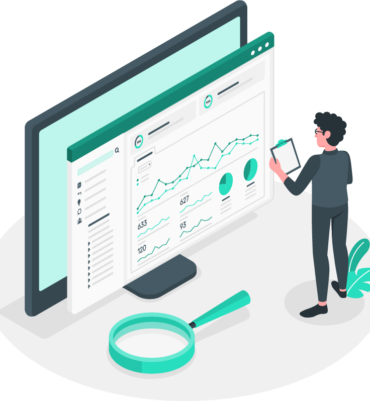Leveraging BI Data Analysis for Enhanced ERP Utilization

Unlocking the Power of Intelligent Insights
Enterprise Resource Planning (ERP) systems have long been the backbone of organizations, streamlining processes, and centralizing data across various departments. On the other hand, Business Intelligence (BI) empowers businesses to analyze historical and real-time data, uncover trends, and make strategic decisions. The convergence of ERP and BI bridges the gap between transactional data and meaningful insights, creating a holistic solution for efficient business management.
ERP and BI Data Analysis
Enterprise Resource Planning (ERP) systems have long been the backbone of organizations, streamlining processes, and centralizing data across various departments. On the other hand, Business Intelligence (BI) empowers businesses to analyze historical and real-time data, uncover trends, and make strategic decisions. The convergence of ERP and BI bridges the gap between transactional data and meaningful insights, creating a holistic solution for efficient business management.
Unveiling the Power of BI Data Analysis in ERP
The integration of BI data analysis with ERP opens up a world of possibilities. Organizations gain access to dynamic dashboards, interactive reports, and data visualizations, making complex information easily understandable and actionable. With real-time access to key performance indicators (KPIs), stakeholders can monitor business performance, track progress, and identify areas for improvement.
Seamless Data Integration and Interpretation
The ERP-BI integration enables seamless data extraction and integration, eliminating the need for manual data entry and reducing the risk of errors. The advanced analytical capabilities of BI tools empower users to explore vast datasets, conduct ad-hoc analyses, and generate meaningful reports instantly. By utilizing BI data analysis, businesses can gain valuable insights into customer behavior, sales trends, and inventory levels, among other critical metrics.
To fully leverage the potential of ERP systems, businesses must recognize the significance of integrating Business Intelligence data analysis. By incorporating BI tools into the ERP ecosystem, organizations can maximize their operational efficiency, improve decision-making processes, and achieve sustainable growth.
Unlocking Competitive Advantage
In today’s fast-paced business landscape, gaining a competitive advantage is crucial for long-term success. ERP systems equipped with BI data analysis capabilities empower businesses to identify market trends, optimize resource allocation, and seize new opportunities swiftly. By making data-driven decisions, organizations can adapt proactively to changing market dynamics, positioning themselves as industry leaders.
In Conclusion
The seamless integration of Business Intelligence data analysis with ERP systems provides organizations with a comprehensive solution for efficient data management and informed decision-making. By leveraging BI tools, businesses can unlock the true potential of their ERP systems, driving growth, and achieving a competitive advantage in the market. Embrace the power of BI data analysis in your ERP utilization journey and pave the way for a data-driven and successful future.

